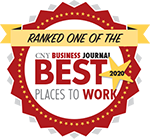Congress created the Paycheck Protection Program (PPP), to provide liquidity to small businesses dealing with the effects of the economic shutdown. It was clear from the language in the CARES Act that loans used for covered expenses would not be included in a business’ gross income. However, the Bill was silent on the deductibility of these covered expenses. The IRS recently released guidance taking the position that allowing businesses to deduct expenses paid with tax exempt income (the PPP loan) would provide a “double tax benefit.” Now, after many small businesses have taken loan money in order to continue paying their employees, make rent, or cover utility costs, they face the possibility that they will not be able to deduct these expenses if their PPP loan is ultimately forgiven.
Lawmakers from both sides of the aisle are critical of this position and are proposing legislation that would override the IRS on this issue. Senators John Cornyn, R-Texas, Charles Grassley, R-Iowa, Ron Wyden, D-Ore., Marco Rubio, R-Fla., and Tom Carper, D-Del. proposed the Small Business Expense Protection Act, an amendment to the CARES Act which would allow covered expenses to be deductible.
A separate piece of legislation enacted by The House of Representatives, called the Health and Economic Recovery Omnibus Emergency Solutions (HEROES) Act, also addresses the deductibility issue. In addition to correcting the deductibility issue, the HEROES Act would allow employers receiving loan forgiveness under the PPP to take advantage of the CARES Act’s payroll tax deferral provisions, which was prohibited in the CARES Act.
So where does this leave small business owners who are wondering how to account for these PPP financed expenses? Unless Congress passes or negotiates a fix, they will have to assume that they will not get both loan forgiveness and the ability to deduct the expenses paid for with loan proceeds. This could ultimately mean companies may need to make larger than anticipated estimated tax payments by July 15th. Hopefully Congress will act swiftly to settle this issue so that business owners can turn their attention to safely reopening as soon as they get the green light to do so.
In order to provide the best advice to our clients, we pay close attention to updates and guidance on the various CARES Act provisions, including the PPP. As soon as we know more, we will release a follow-up article with the latest information and impact to small business owners.


